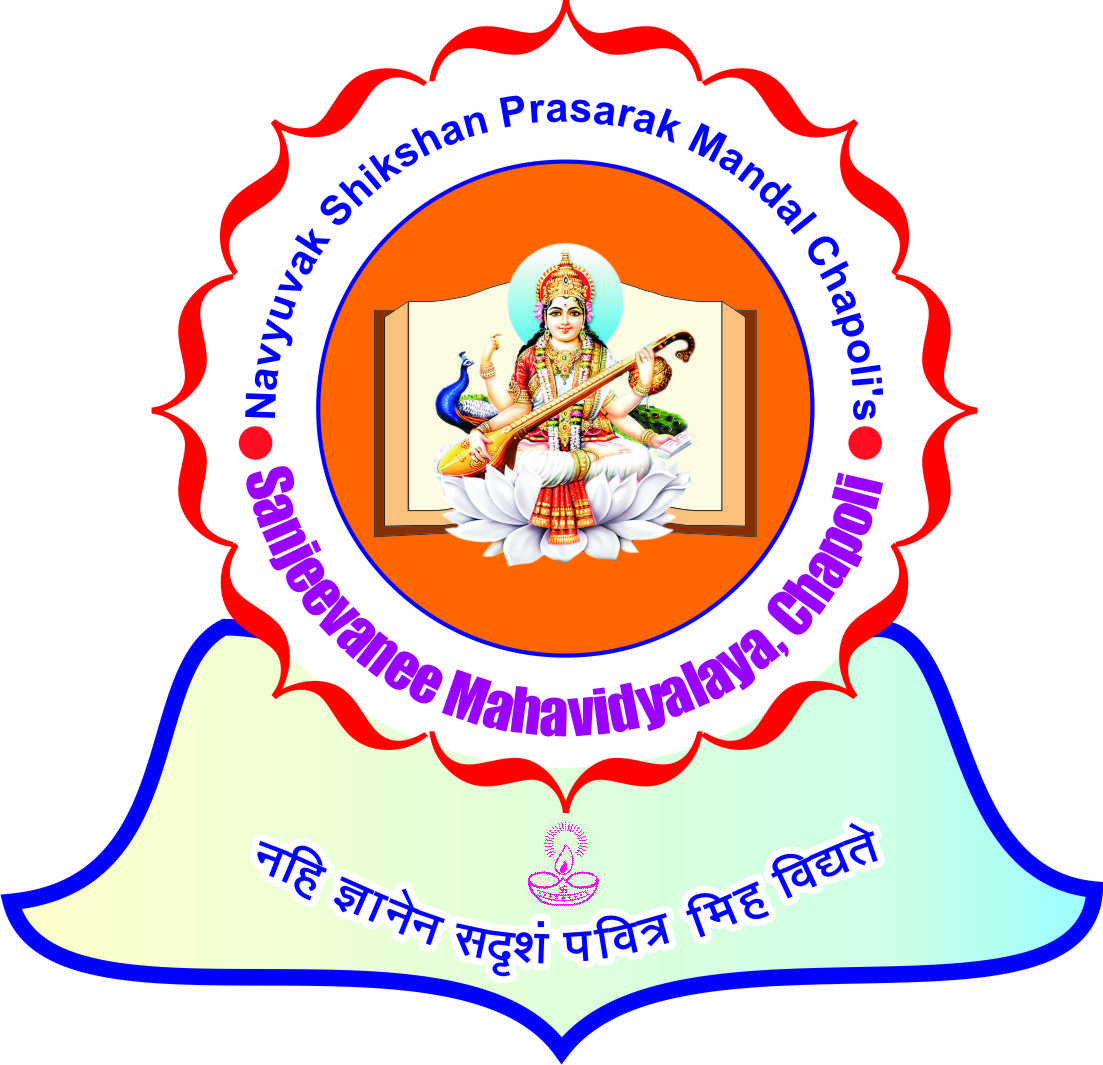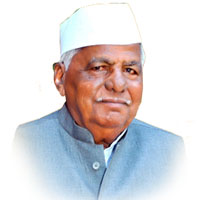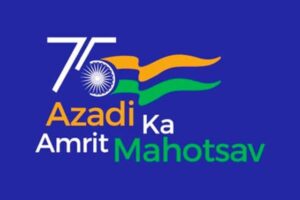Sanjeevanee Mahavidyalaya, Chapoli Tq.Chakur Dist.Latur (M.S) is multifaculty college situated in rural area on Latur-Nanded road . Keeping in view the educational needs of the rural masses Navyuvak Education Society, Chapoli established Sanjeevanee Mahavidyalaya ,Chapoli in the year 1999 since then the college has been catering the needs of the rural students.
The college offers undergraduate courses such as B.A, B.Sc, B.C.A & B.C.S with basic subjects Marathi, Hindi, English, Urdu, Pali, History, Sociology, Public-administration, Economics, Maths, Poli-science, Geography, B.Sc faculty offers basic subjects, Chemistry, Physics, Mathematics, Botany, Zoology, keeping place with time and sensing the needs of the students, applied subjects like Microbiology, Dairy Science, Computer science, Electronics, Industrial chemistry, Fishery science, Analytical chemistry, Agro-microbiology, Geology, Environmental science,Agrochemical and fertilizers,Statistics,Horticulture,Dyes and Drugs,Elology,Fruits and Quality Controi,Seed technology,Computer application,Computer maintainance were started from the year 1999.
Scope and importance of the departments:
Education is the core subject to all the teaching subjects. It deals with the study of teaching-learning process which is the central of every subject .It focus on the learner along with the teacher. It provides the methodology to all subjects about teaching-learning for the effective and efficient outcome. In our college, the education as a subject is taught at general level at all the three years to the undergraduates. This provides an opportunity for the students to get acquainted with the concept, nature, scope and importance of education, its philosophical, sociological and psychological foundations, new trends in education.
Introduction of department:
The positive link between education and development has been accepted and established. Hence, there is a need to understand various facets of education. To fulfill this need the college has established the department of education in the year 1999. Since then, education is taught at general level from the first year to the third year of the undergraduate level.
Strength of the students offering education is continuously increasing. The percentage of students successfully passing at the university examination is always above 95% i.e. well above University results.
Year of Establishment: 1999
Detail of Programmes / Courses offered: UG
| Sr. No | Programme level | Name of the programme/ Course | Duration | Entry qualification | Medium of Instruction | Sanctioned/ Approved student strength | No. of Student admitted |
| 01 | UG | B.Sc. | 03 Years | 12th Pass | English | — | 123 |
Number of Teaching and Non-teaching positions in the department:
| Sr. No. | Designation | Number of Post |
| 1 | Assistant Professor | 02 |
| 2 | Lab-Assistant | 01 |
| 3 | Lab-Attendant | 02 |
Faculty profile with name, qualification, designation, specialization, (Ph.D. / M. Phil.)
| Sr. No. | Name of Faculty | Qualification | Year of Appointment | Designation | Specialization | Number of years of teaching experience | Number of years of Research experience | Profile |
| 1. | Dr. Fulmante B. M. | M.Sc., M.Phill., Ph.D. | 2014 | Assistant Professor | Electronics | 10 | 06 | Click here |
| 2. | Mr. Kyadampure A. T. | M.Sc., SET, GATE. | 2014 | Assistant Professor | Astrophysics | 06 | — | Click here |
Details of infrastructural facilities:
Library: The department does not have a library, but the complementary copies provided by the different publishers and personal books and journal of the Faculties are preserved in the department for the use of the students and faculty members.
Class rooms with ICT facility : NIL
Laboratories: The department consists of two separate laboratories for light experiment and general practical classes.
Details of student enrichment programs (special Lectures / workshops/seminar) with external experts: Nil.
Teaching methods adopted to improve student learning:
Traditional lecture method.
Practical classes.
Special classes.
Lecture using LCD projector.
Participation in Institutional Social Responsibility (ISR)and Extension activities:
The Students and the Faculty members regularly participate in the Institutional Social Responsibility and Extension activities organized by the college NSS Units.
SWOC analysis of the depart and future plans:
Strength: Student-teacher relation has always been the strength of our department. Students are always encouraged to ask any question however unreasonable it may be and teachers always try to give a agreeable answer to it. Also dedicated Faculty members, non Teaching Staffs, Moderate equipped laboratories, intelligent and hard working students are the strengths of the department.
Weakness: With the growing number of students, we cannot give equal attention to all of them with our insufficient faculty. Also Infrastructure of laboratories, shortage of space for class room are main weakness of our dept.
Opportunities: Students passing with Physics go for higher studies in different colleges and University.
Challenges: There is limited scope for innovation in curriculum design as the syllabus prescribed by the university is strictly followed. However, topics related to frontier areas of research are discussed through internal seminar and invited talks. This intention is threatened due to constraints of time and space. Non flexibility of curriculum is also a challenge.
Future Plans:
To train students to master the basics of the subject and improve their soft skills through several interactive sessions both in theory and practicals.
To motivate teachers to guide undergraduate students for research projects.


